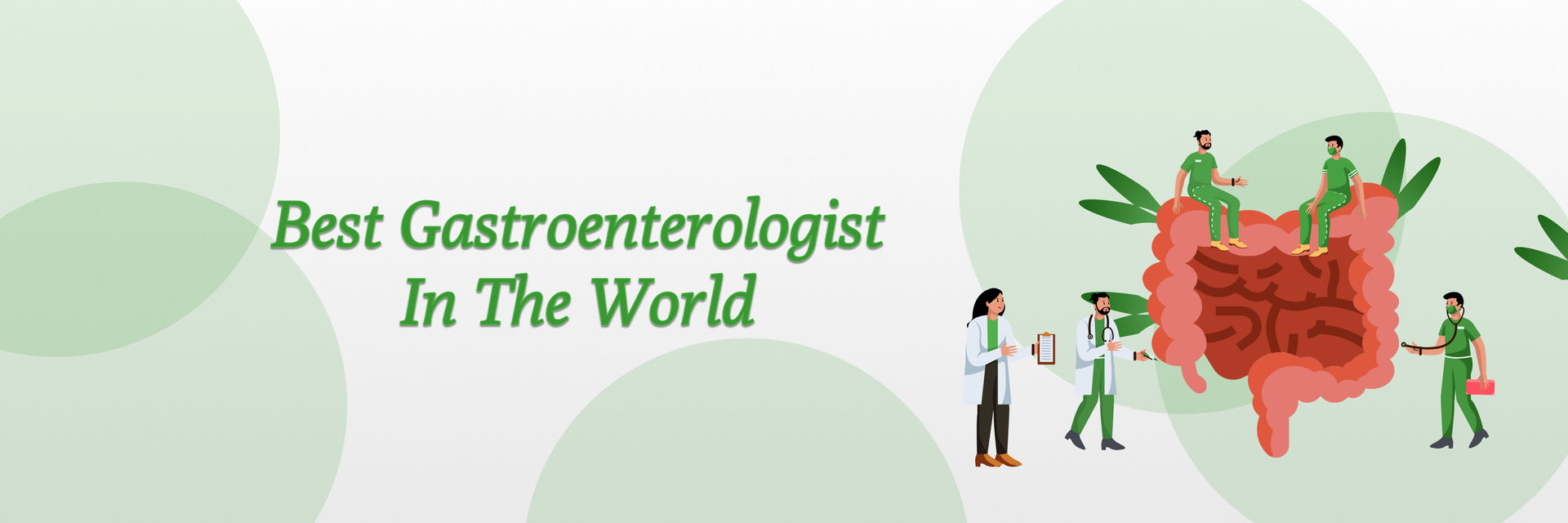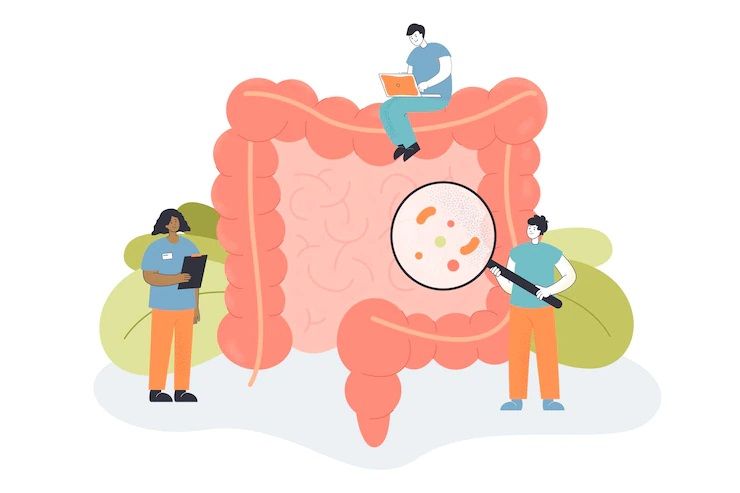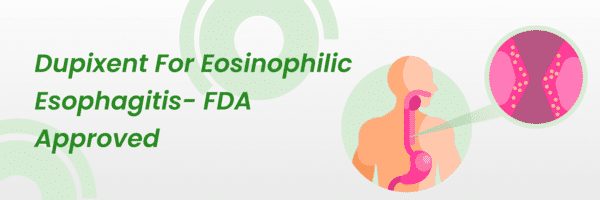Fatty Liver and Chronic Diarrhea: A Complex Association

Fatty liver and chronic diarrhea may not appear to share a common thread, but they are intertwined in several ways. Let's explore this intriguing connection:
1. The Basics of Fatty Liver: Fatty liver, also known as hepatic steatosis, is a condition characterized by the accumulation of fat in liver cells. It can result from various factors, including obesity, excessive alcohol consumption, and metabolic disorders.
Symptoms of Fatty Liver
- Fatigue
- Abdominal pain
- Jaundice
- Unexplained weight loss
- Fatty liver can lead to inflammation and, if left untreated, progress to more severe liver diseases.
2. The Enigmatic Link to Chronic Diarrhea
Chronic diarrhea, on the other hand, involves frequent, watery bowel movements. Chronic Diarrhea persists for more than four weeks. Though it is associated with gastrointestinal issues, it can also be connected to fatty liver.
Causes of Chronic Diarrhea
- infections
- inflammatory bowel disease (IBD),
- irritable bowel syndrome (IBS),
- celiac disease
- food allergies or intolerances, and certain medications.
3. The Shared Problem: Inflammation
Inflammation serves as the bridge between fatty liver and chronic diarrhea. Studies have shown that the chronic inflammation associated with fatty liver can extend beyond the liver itself. It affects the gastrointestinal tract.
How Inflammation Connects Them
- Inflammatory molecules in the liver can trigger gut inflammation.
- Gut inflammation can lead to chronic diarrhea.
This connection underscores the importance of addressing inflammation in both conditions.
Your health is too important to ignore – schedule your appointment now.
Can diet worsen chronic diarrhea in fatty liver disease?

Yes, some dietary factors that may worsen your diarrhea are:
High-Fat Foods: Eating lots of saturated and trans fats? Watch out, as they can kick your gut into overdrive. These fatty foods can make your body release bile acids. If not absorbed properly, can cause diarrhea.
Processed Foods: Don't let those pre-packaged, ultra-processed snacks trick you. They are packed with additives, preservatives, and artificial ingredients that can truly upset your stomach.
Sugar Overload: Got a sweet tooth? Too much sugar or artificial sweeteners can upset your stomach and lead to tummy trouble, causing diarrhea in some people.
Caffeine and Alcohol: Love your morning coffee or a nightcap? Well, caffeine and alcohol can be tough on your tummy, and they're not the best buddies with diarrhea. If you've got fatty liver disease, steer clear of alcohol altogether.
Lactose Trouble: Milk and dairy might not be your pals if you are lactose intolerant. They can send you running for the bathroom with a bout of diarrhea.
Fiber Overload: Fiber's usually a digestive superhero, but too much of the insoluble kind can make diarrhea worse.
Food Allergies and Sensitivities: If you've got food allergies or sensitivities, your stomach might rebel with symptoms like diarrhea.
Take charge of your diet, watch what you eat, and listen to your body. Managing your food intake can help keep those unwanted bathroom dashes at bay.
Treatment Options for Fatty Liver and Chronic Diarrhea

Managing fatty liver and chronic diarrhea involves a multi-faceted approach that includes lifestyle changes, medications, and addressing underlying causes:
- Improve your liver health by managing Fatty Liver Disease through adopting important lifestyle changes. Incorporating a well-balanced diet, regular exercise routine, weight loss goals, and avoiding smoking and alcohol can significantly enhance your overall well-being.
- Dietary Modifications: Reduce your intake of high-fat, greasy foods, and processed foods. Increasing fiber intake may also help regulate bowel movements.
- Medications: Your doctor will prescribe medications to manage symptoms. For example, anti-inflammatory drugs or immunosuppressants may be prescribed for gut infection.
- Bile Acid Malabsorption: If you have fatty liver disease along with bile acid malabsorption, it will lead to diarrhea. Bile acid sequestrants like cholestyramine may be prescribed to help bind excess bile acids.
- Supplements: Your doctor may recommend certain supplements, such as fat-soluble vitamins (A, D, E, K), if malabsorption is an issue due to fatty liver disease.
- Inflammatory bowel disease management: Specialized treatments may be required for IBD-related diarrhea.
Take charge of your health and your life. Contact us today!
Can lifestyle changes help manage chronic diarrhea in fatty liver disease?

Yes, some of the lifestyle modifications you could follow are-
- Low-Fat Diet: If you have fatty liver disease, particularly non-alcoholic fatty liver disease (NAFLD), reducing your intake of saturated fats will be useful.
- Fibre-rich Foods: A fiber-rich diet will help regulate your bowel movements. But if you have IBS or other conditions that worsen with high fiber intake. Consult your doctor for personalized recommendations.
- Food Triggers: Identify and avoid foods or beverages that trigger or worsen your diarrhea. Common triggers are spicy foods, caffeine, artificial sweeteners and certain dairy products for lactose intolerant patients.
- Eating smaller and more frequent meals throughout the day instead of large ones may help reduce the burden on your digestive system and thus help ease diarrhea.
- Hydration: Keep yourself well hydrated with water, fluids, herbal teas, and oral rehydration solutions as chronic diarrhea can lead to dehydration.
- Stress Management: If your stress levels are high, it can worsen your diarrhea. Try stress-reduction techniques such as meditation, deep breathing exercises, yoga, or counseling.
- Physical activity: Regular physical activities like walking, swimming, and exercise can improve your physical health. Lose weight if you are obese or overweight.
- Avoid alcohol and smoking: Alcohol and smoking can worsen fatty liver disease and irritate the GIT.
- Managing medicines: If your chronic diarrhea is associated with specific medical conditions like irritable bowel syndrome or inflammatory bowel disease, visit your doctor for medicines,
- Probiotics: Probiotic supplements may help restore a healthy balance of gut bacteria.
Did you know that your liver has the amazing ability to repair itself and it can even reverse early damage! Yes, you read that right.
Let's dig into further to learn better on this.
Your well-being is our priority - call us to book your appointment today
Is chronic diarrhea reversible in fatty liver disease?
![]()
Yes, chronic diarrhea is reversible in fatty liver disease.
The possibility of reversal depends on what's causing the diarrhea. If your fatty liver disease is in its early stages, your liver has a remarkable ability to heal itself. You can help by cutting back on alcohol and shedding some pounds, which can reduce liver fat and inflammation.
However, certain factors can make you more prone to chronic diarrhea. To figure out the root cause, consider whether infections, inflammatory bowel disease (IBD), irritable bowel syndrome (IBS), food intolerances, medications, or other gut issues are at play. Specific treatments are available for each of these conditions.
Managing fatty liver disease can improve your overall health. But it may not directly cure chronic diarrhea unless the liver disease itself is causing the problem. If conditions like IBS or food intolerances are behind your diarrhea, lifestyle and dietary changes can make a real difference. Your doctor may suggest tailored diets or nutritional adjustments to address these stomach issues. Depending on the specific cause of your chronic diarrhea, your doctor may prescribe medications to relieve symptoms or manage the underlying condition.
References:
https://www.medicalnewstoday.com/






